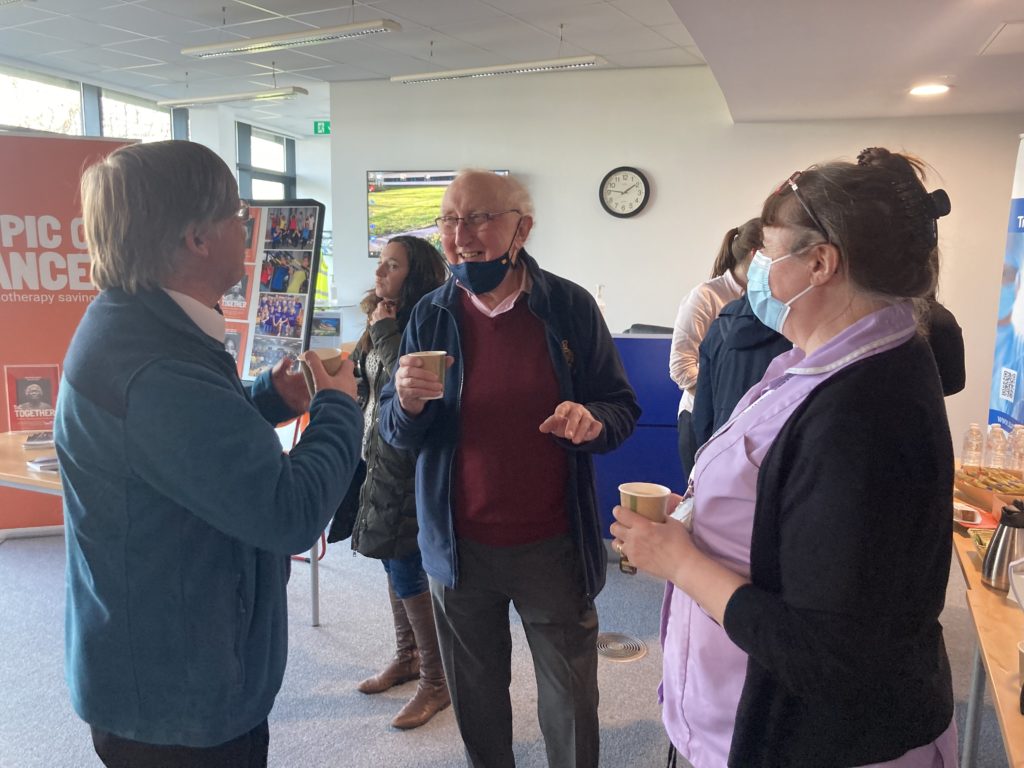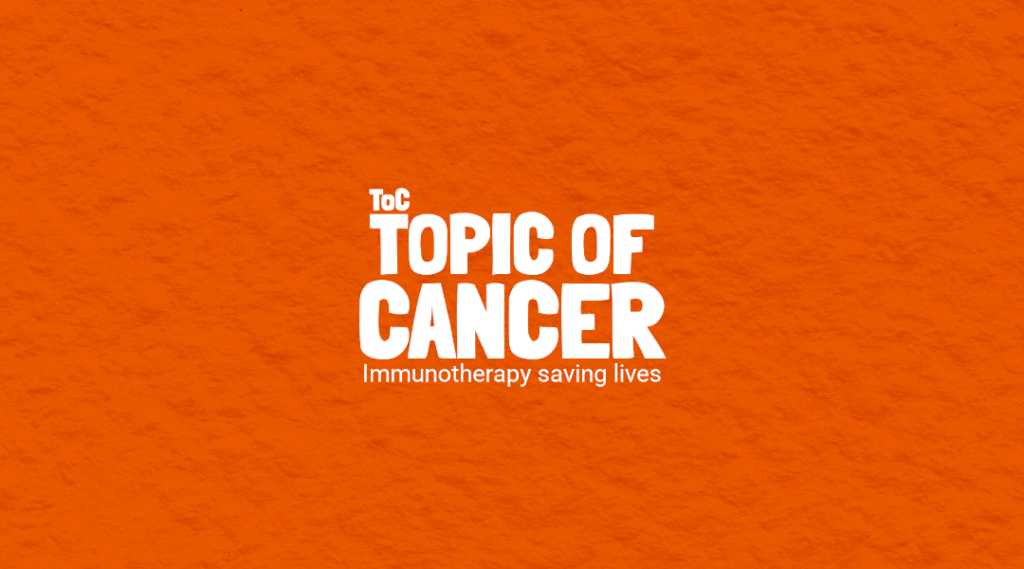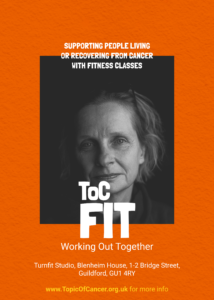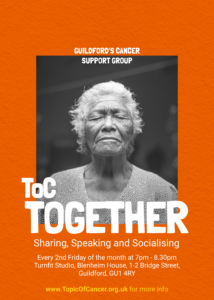During the past decade, immunotherapy has permanently changed cancer treatment and it has become the standard of treatment in the NHS for many. When Guildford based charity, Topic of Cancer was launched in 2013, immunotherapy was still very much in its infancy. Prof Pandha and his research team, based at the University of Surrey, were one of the few teams spearheading research into this revolutionary type of cancer treatment. Since then, it has entered the medical mainstream as a powerful game-changing treatment for many cancer patients, improving quality and length of life.
Topic of Cancer Chair, Anne Powell-Evans, explained the need for a charity rebrand which reflected these seismic changes. “During the pandemic lockdown the trustees had the opportunity to carry out some research with a range of people and reflect on the charity’s aims and vision.
Our bold new refreshed brand is designed to be more accessible and modern, engaging with cancer patients and researchers, alongside reaching new audiences. Our aim is to support research into immunotherapies, so that new treatments for more cancers are developed, saving more lives and bringing hope for a better future.”
To celebrate the scientific and clinical advances the team has made over the past decade and to launch the new look to friends and supporters, a research afternoon was held at the labs at the
University of Surrey. Trustee and Professor of Medical Oncology, Hardev Pandha gave an introduction to cancer immunotherapy and Dr Charles Rayner shared his research into new
immunotherapy approaches to treating oesophageal cancer, which currently has very poor outcomes under conventional treatments.

Trustee and Consultant Medical Oncologist at Royal Surrey Hospital, Dr Panos Koliu explained how immunotherapy has revolutionised melanoma skin cancer, becoming the standard treatment and drastically improving survival rates. Whilst a heartfelt and emotional account from cancer patient, Martin Aquilina, whose cancers have been successfully treated by immunotherapy, brought home just how vital this research is in saving lives and giving hope.
Finally, Senior Research Fellow Dr Nicola Annels shared future research projects into bacteria and microbiomes that live inside cancer cells and how these might be altered to improve the
effectiveness of immunotherapy drugs. The team also needs a machine called a MACs Quant 16, which will allow them a more detailed and faster analysis of thousands of immune cells, giving them detailed information as to whether anti-cancer immune responses are happening, and if so, how good these responses are.
The team relies solely on grants and charitable donations to conduct this work, to donate please visit www.topicofcancer.org.uk/donate.




